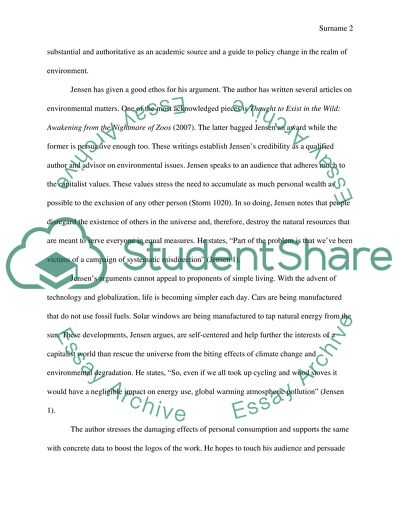Cite this document
(“Rhetorical Analysis: Derrick Jensens Forget Short Showers Assignment - 1”, n.d.)
Rhetorical Analysis: Derrick Jensens Forget Short Showers Assignment - 1. Retrieved from https://studentshare.org/english/1684338-rhetorical-analysis
Rhetorical Analysis: Derrick Jensens Forget Short Showers Assignment - 1. Retrieved from https://studentshare.org/english/1684338-rhetorical-analysis
(Rhetorical Analysis: Derrick Jensens Forget Short Showers Assignment - 1)
Rhetorical Analysis: Derrick Jensens Forget Short Showers Assignment - 1. https://studentshare.org/english/1684338-rhetorical-analysis.
Rhetorical Analysis: Derrick Jensens Forget Short Showers Assignment - 1. https://studentshare.org/english/1684338-rhetorical-analysis.
“Rhetorical Analysis: Derrick Jensens Forget Short Showers Assignment - 1”, n.d. https://studentshare.org/english/1684338-rhetorical-analysis.


